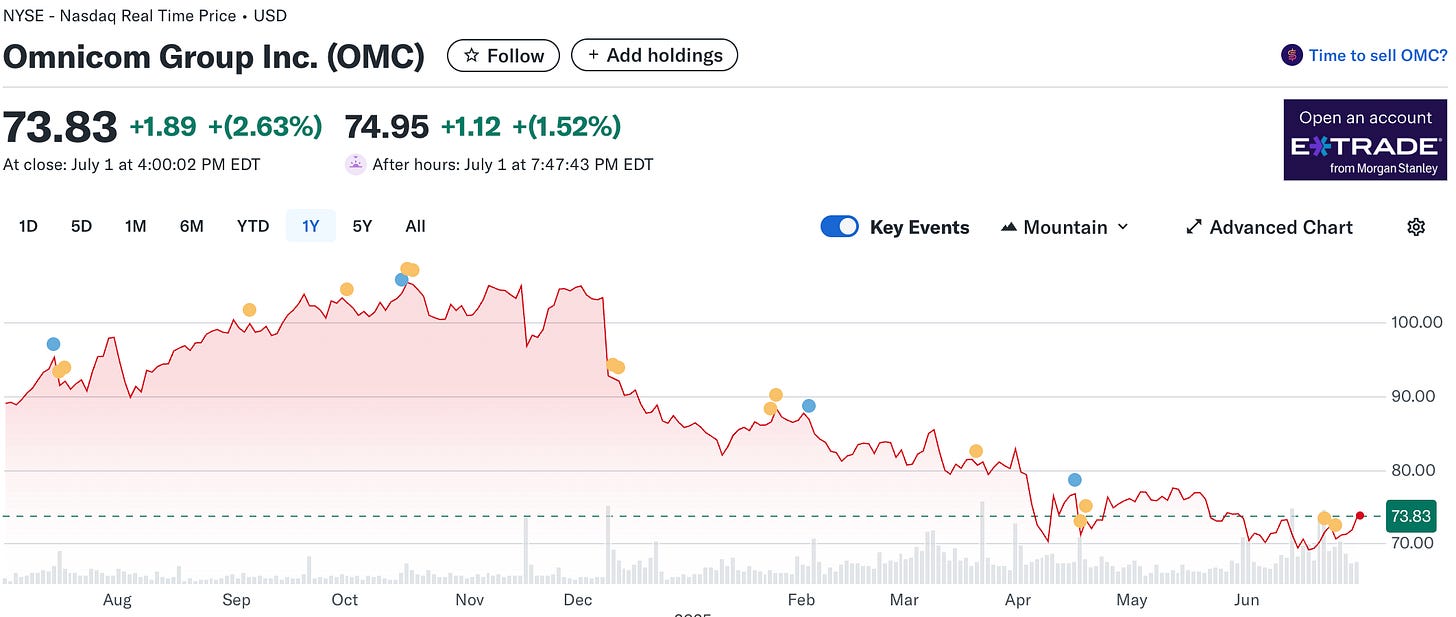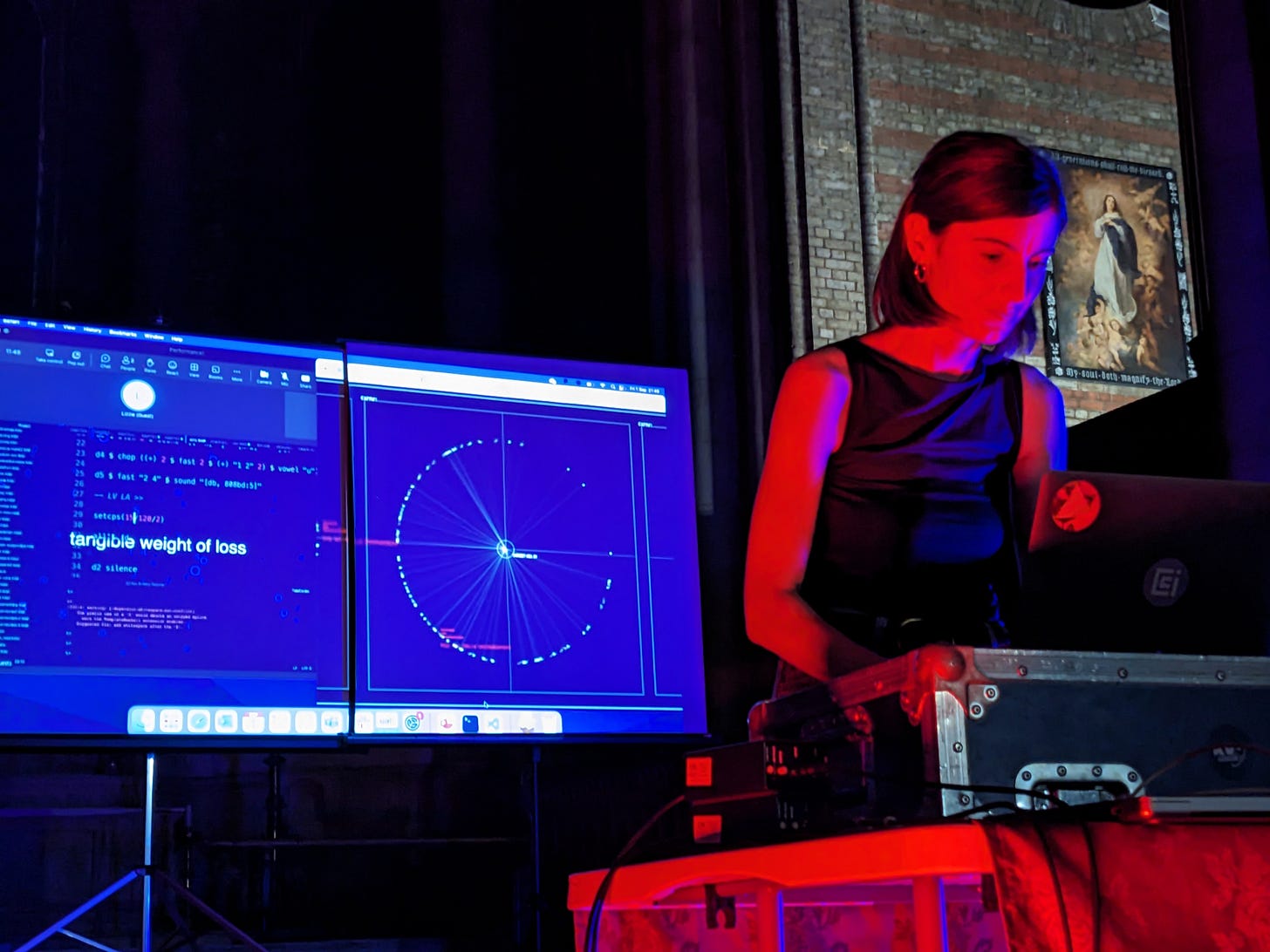The Myth of Creative Immunity
Denial, and the Future of Human Expression
Before we dive into the main story on creativity and what Cannes may have got wrong, it’s worth zooming out for a moment with a quick ask and to share some important AI highlights from the week.
If you’ve read Marketing with AI for Dummies, would you consider clicking through to rate it or leaving a review on Amazon? Publishers aggressively encourage authors to seek out reviews, and I’ve admittedly been lax on that front. With translations now available in Portuguese, French, and Bulgarian—as well as English—the book continues to get attention around the world.
It’s only Thursday, but already this week, the AI world has delivered three stories that reveal the scale of disruption and the stakes ahead for both enterprises and individuals alike:
Cloudflare launched “Pay per Crawl,” a private beta marketplace that lets website owners charge AI companies micropayments for scraping their content, giving publishers more control and potential revenue. With major publishers backing it, the initiative marks a shift toward permission-based AI access amid declining referral traffic and rising AI-driven content use.
At Hard Fork Live, Sam Altman dismissed near-term AI job loss fears, pushing back on claims that half of entry-level white-collar jobs could vanish soon, saying tech adoption moves slower than expected. This directly contradicts his former employee and CEO of Anthropic, Dario Amodei’s recent view. While Altman acknowledged job losses will be painful, he emphasized AI’s broader public benefits and shared a more confident, self-assured perspective.
According to the Harvard Business Review story, The AI Revolution Won’t Happen Overnight, AI may one day unlock trillions in value, but enterprises first must battle slow adoption, legacy systems, talent gaps, and overhyped vendors that drive up costs and inflate expectations. The upside belongs to leaders who focus on patient integration by building data architecture, retraining teams, and embedding AI into real workflows for durable, measurable ROI.
Confronting AI’s Quiet Takeover of Creativity
The most shocking moment for me at the Cannes Festival of Creativity last month came during a panel with Chief Creative Officers from several major ad agencies. One creative leader stood up and boldly declared that we all need to stop overreacting. According to her, new technologies have always threatened to replace creativity and eliminate jobs, but never actually did. AI, she claimed, would be no different. It wouldn’t take anything away; it would simply make us more creative and more productive.
The audience broke into spontaneous applause. She looked smug. Her fellow panelists vigorously nodded along, as if this were some profound truth. I sat there stunned. To dismiss the very real consequences AI poses to creative careers with such arrogance isn’t just naive. It’s reckless. And the room’s reaction wasn’t any better. It felt like willful ignorance masquerading as confidence.
To be fair, it’s not just about her or that one audience. There was a strong strain of denialism running through the festival, echoing through the Palais and into private conversations. But the denial is becoming harder to maintain. AI is already taking creative jobs, quietly and at scale and especially in the production layers of the industry. The uncomfortable and painful truth is that the shift is already underway, and pretending otherwise won’t stop it.
Wall Street is Catching Up
Even Wall Street has taken note. Earlier this week, The Wall Street Journal reported that Barclays downgraded the stock of several major ad holding companies, including Interpublic, Omnicom, and WPP. After dozens of agency meetings at Cannes, their analysts came away more bearish than before. Their takeaway? The industry is entering a prolonged period of uncertainty.
AI is reshaping agency economics, disrupting hourly billing models, and making once-elite capabilities widely accessible. The future will demand time, investment, and flawless execution. But the near-term outlook is flat—if not shrinking—as more brands bring creative work in-house and expect agencies to deliver more for less, yet again.
So if the jobs are already disappearing, the more philosophical and perhaps unsettling question remains: Is creativity still exclusively human? Or is that too beginning to change?
The Fragile Line Between Creation and Co-Creation
Some argue that generative AI can expand the creative process, acting less as a replacement and more like a new creative medium. Just as graphic design once introduced a new visual language, generative AI enables us to create what we might never have imagined on our own.
Take Lizzie Wilson, profiled in MIT Technology Review. She performs at raves by live-coding music in real time for her fans, part of a movement known as algorave. But Wilson pushes it further. She now uses a generative AI model as a co-creator, letting it autonomously code loops and beats she hadn’t conceived herself. “You get these elements of surprise,” she said. This isn’t automation. It’s AI improvisation. Some call it co-creativity, or even more-than-human creativity. And it’s real and something different.
Many of us, myself included—a former fiction writer—hold on to the belief that creativity is as much about control as it is about expression. It’s the quiet, careful act of shaping something that carries your intent, your emotion, your imagination. That’s why AI unsettles the idea of authorship. To invite it in is to loosen your grip. It might make the work sharper, even more beautiful, but also less wholly yours. Can we still call it creativity when the spark comes from somewhere outside us? From a suggestion we didn’t make, a melody we didn’t hear first, a thought born not from us, but from lines of code?
It’s a shift in how we create—and perhaps in how we understand ourselves. Maybe the definition of creativity itself needs to evolve, to become a little more inclusive of AI. Because this isn’t just a change in process. It’s a change in identity. What does it mean to create, to be a creative, when we’re no longer the sole originators of the work? And if we’re no longer the only ones needed, what roles do we play in this future—and what new skills must we develop to truly co-create?
There’s also a quieter, more insidious risk. As generative tools become easier and more powerful, we risk atrophying the very muscles that make us creative. The more we co-create with AI, the more our own creative superpowers may dull. Furthermore, the creative process is messy by nature—it requires failure, frustration, and wandering in the dark. That’s where the breakthroughs happen. But AI doesn’t fail; it simply outputs. And in doing so, it threatens to take away something essential: the sting of failure, the pause for reflection, the breakthrough that only comes through struggle.
A Tighter, Smaller Future?
A new twist is adding even more complexity to the creative landscape. Cloudflare recently introduced a default setting that lets websites block AI bots from scraping their content. In a world where AI is only as good as the data it trains on, this is a major shift. High-quality content may increasingly become gated, monetized, or legally restricted. And if AI loses access to that data, its performance—and perhaps its creative potential—could decline, just as our own creativity risks atrophying from over-reliance on these tools.
On the surface, this may seem like a technical update. But at its core, it’s a profound statement about the future of creativity: who owns it, who fuels it, who protects it, and who profits from it. Once again, the race to be most creative may favor those—human or machine—with privileged access to the best sources of inspiration. And that, too, threatens to widen the divide.
So here we are. Creativity is changing. Or at the very least, creating is. With AI, we gain speed, scale, and surprise. But we also lose something less measurable—control, struggle, authorship, even identity. The real question isn't whether AI will replace us. It's whether we'll still recognize ourselves in what we make with it.
Which brings me back to that moment in Cannes. That creative leader’s confident dismissal wasn’t just short-sighted, I believe it missed the point entirely. The challenge isn’t whether AI will take our jobs. It already is and will continue to do so. The challenge is whether we’re prepared for what happens to creativity when the process, the authorship, and the value systems behind it all begin to shift.
That applause wasn’t a defense of creativity. It was a refusal to confront what’s coming. And if we keep clapping instead of questioning, we may soon find ourselves with fewer work opportunities to create and somehow contributing less of ourselves than we realize or may want if we even do hold onto our jobs.
One thing’s certain: the future is messy.
What I’m reading
AI Is Homogenizing Our Thoughts (New Yorker)
Good Taste Is More Important Than Ever (The Atlantic)
Anthropic launches program to track AI’s economic fallout (Techcrunch)
What I’ve written lately
The Silent Shift in Marketing Leadership (June 2025)
AI Trailblazers Summit Highlights (June 2025)
Will the Model Remember You? (June 2025)
Retail & Campaigns: AI in Action (May 2025)
The Memo Every Leader Should Read (April 2025)







Fantastic roundup Shiv. The inside scoop from Cannes is sadly expected. I’m going to send you something you may appreciate related to co-creativity. It’s not published yet
Very insightful as always Shiv. There is no denying that GenAI has started to redefine what creativity is, much like photography did - as was brilliantly exposed by the likes of Walter Benjamin or Susan Sontag - and digital photography extended. Authorship has been getting more and more fluid and porous with the continuous rise of mechanical means of creation. With generative means of creation, creativity itself is being transformed. It's up to us to make it for the best.